LVMH Métiers d’Excellence and Fendi Launch Inaugural Prize Dedicated to Italian Craftsmanship
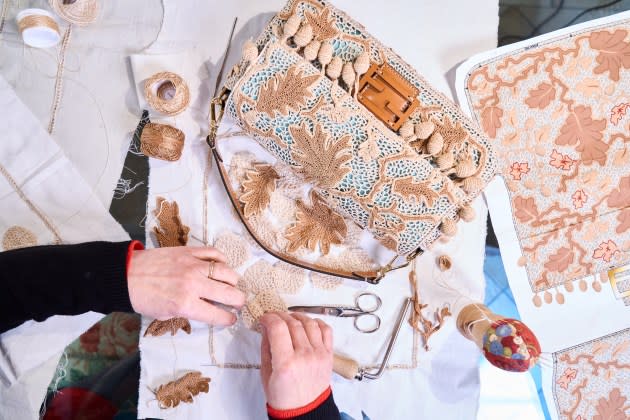
MILAN — Fendi and its parent LVMH Moët Hennessy Louis Vuitton are reinforcing their commitment to spotlighting Italian craftsmanship.
Partnering with the Camera della Moda and the Confartigianato association, on Tuesday the companies presented their new project, the “Maestri d’Eccellenza” award dedicated to local master artisans. The goal of the initiative is to raise awareness around the importance of Italian craftsmanship and its preservation; develop media attention to the cause, and offer financial aid to some of its exponents.
More from WWD
The award is reserved for Italian artisans and companies that have been in operation for at least 12 months in sectors encompassing textiles, clothing, footwear, tailoring, eyewear, jewelry and fashion product components. Applications for the awards will open Wednesday on a dedicated website.
Candidates can apply for just one of the three categories available. One is “Maestro Artigiano d’Eccellenza,” dedicated to expert craftsmen and firms with at least five years of experience and that stand out for their quality as well as commitment to develop and pass down their know-how. The “Maestro Artigiano Emergente d’Eccellenza” award is reserved for emerging talents with a promising artisanal project developed at least five years before the application. The third, “Maestro Dell’Innovazione d’Eccellenza,” is aimed at companies and professionals innovating and reinterpreting traditional crafts in a modern way.
Applications can be submitted until May 14, when a jury will start reviewing them and select three finalists for each category over the summer. To be revealed during a special event in September, the final three winners will receive a money prize of 10,000 euros, media coverage and mentoring sessions with Fendi professionals.
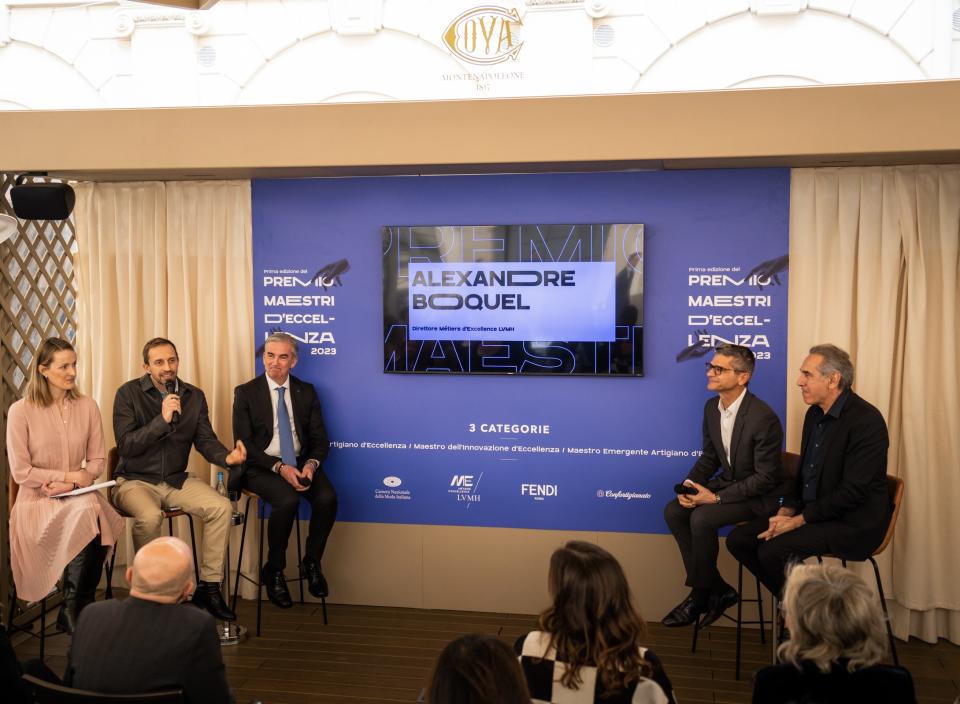
The project was teased in November, when LVMH hosted the Show Me event here and said that each year a different group brand will partner with the Italian fashion chamber to acknowledge three master artisans, starting with Fendi.
On Tuesday, Fendi’s president and chief executive officer Serge Brunschwig underscored the importance of the project from a communication point of view, highlighting the need for “publicly acknowledging” these crafts.
This approach is not new for Fendi, as the brand has previously implemented the “Hand in Hand” initiative, among others. First launched in 2020, the project aims to spotlight Italian craftsmanship by tapping local artisans to reinvent the iconic Baguette bag that Fendi’s artistic director for accessories and menswear Silvia Venturini Fendi designed in 1997.
As part of “Hand in Hand,” the company opened the doors of its Roman headquarters Palazzo della Civiltà Italiana to the public for an exhibition showcasing 20 one-of-a-kind Fendi Baguette bags that Venturini Fendi developed in collaboration with 20 ateliers and workshops. Each of these was located in an Italian region, from Trentino Alto Adige and Valle d’Aosta to Calabria and Sicily. Last year, the brand also released a tome further spotlighting the collaborations.
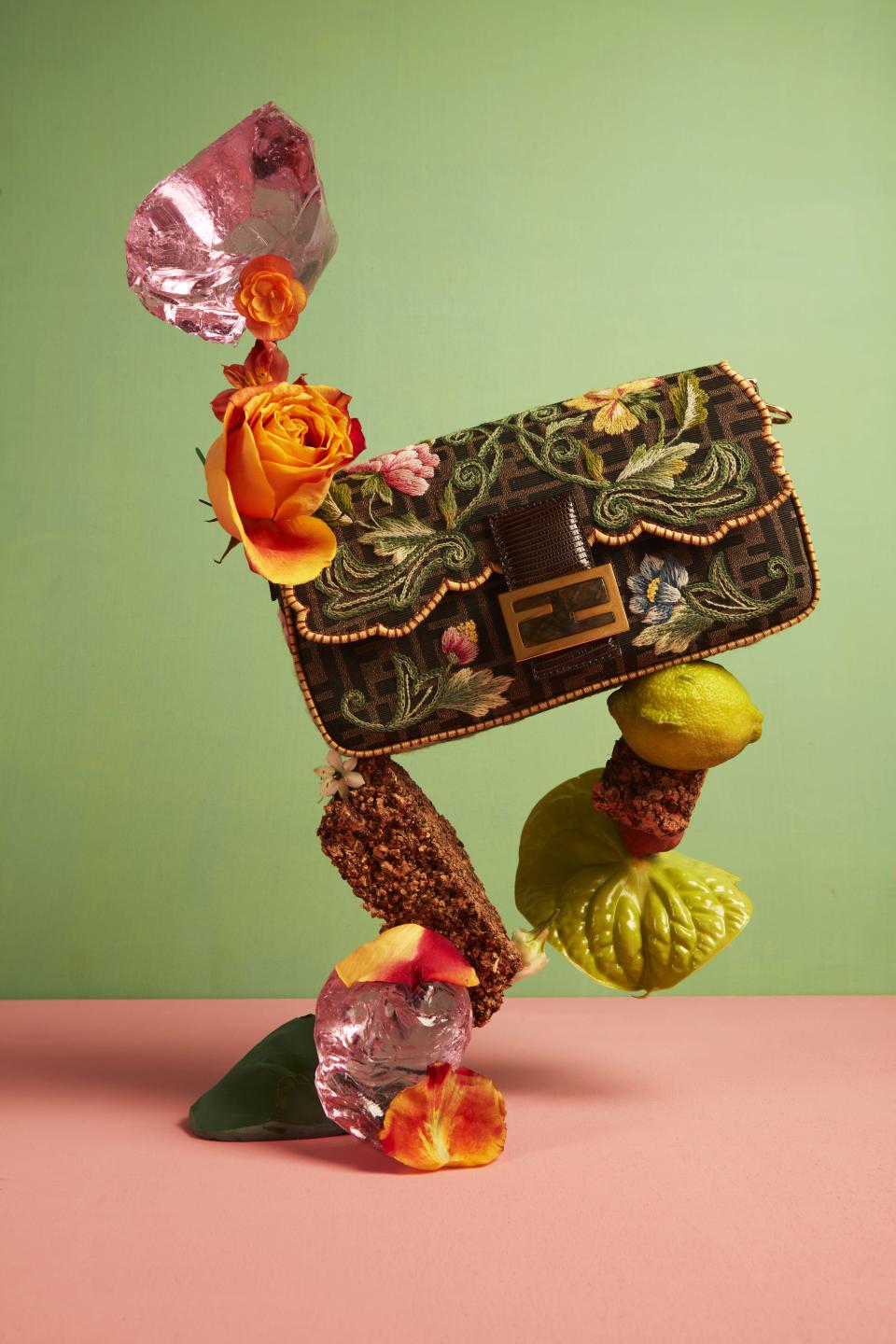
“Craftsmanship must be defended, shown, communicated and we need to ensure it continues too,” said Brunschwig, pointing to the shortage of skilled workers in these fields.
“If companies’ sales grow, that means that the load of work grows as well,” he continued, noting the need not only to replace a generation approaching retirement age but adding new hires. “There isn’t this workforce in Italy, due to low natality levels but also to generations opting for classic education rather than technical ones.”
To this end, Fendi is among the LVMH-controlled brands involved in an initiative aimed at implementing educational programs at middle schools, to inform young students about the career opportunities of artisanal jobs as much as changing their parents’ perception toward these roles.
For example, in a year the French group’s Excellent program geared toward teenagers raised awareness about these jobs among 700 middle school students in Italy thanks to collaborations with brands such as Bulgari, Berluti, Celine, Dior and Loro Piana, in addition to Fendi.
“But what we do is a drop in the ocean. The next step has to be at institutional levels,” Brunschwig said. “We need to see how we can scale up this approach, and not only for the luxury industry. There are plenty of fields here in Italy [that can benefit from it], from automotive to hospitality,” he added.
For example, the CEO said the state-of-the-art accessories plant opened in Bagno a Ripoli, a 30-minute drive from Florence, would have the capacity to accommodate a 700-person workforce but there’s still a vacancy for 300 workers.
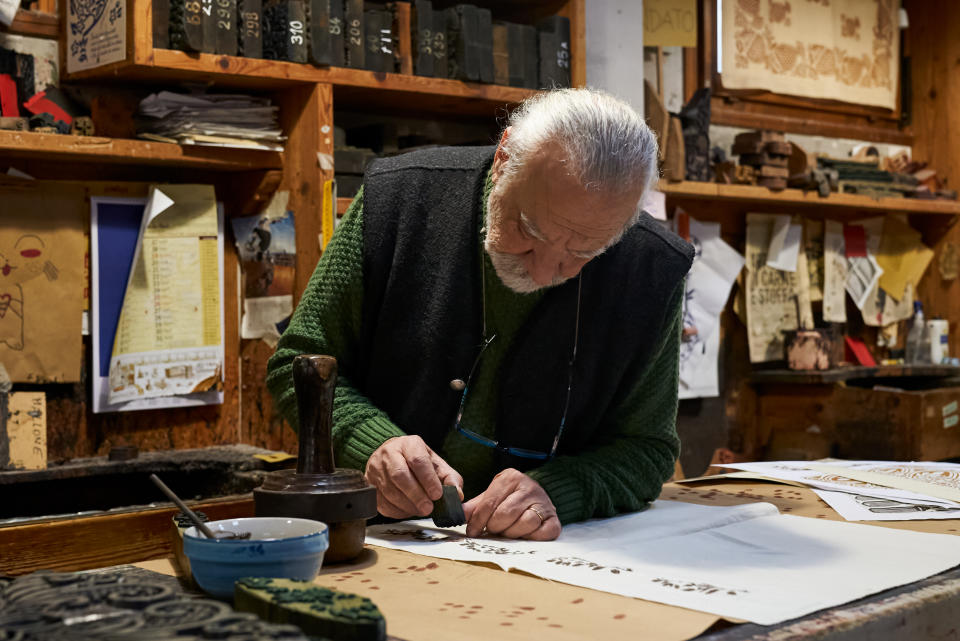
“Yet the case of the entire supply chain is even more important compared to our direct employment,” Brunschwig said. He noted that while Fendi and LVMH have the financial and reputational resources to attract people and train them in-house, the case is different for smaller-sized companies that act as the brand’s partners and suppliers and are still pivotal for Fendi. “So the real challenge is to ensure the whole supply chain has skilled workers,” the executive said.
Confartigianato’s president Marco Granelli shared that there will be more than 43,000 worker vacancies this year in the fashion sector alone. Alexandre Boquel, head of development for the LVMH Métiers d’Excellence division, underscored that the French luxury group is looking to hire more than 2,000 workers in Italy by the end of 2024.
Boquel highlighted that the group feels the duty to “enhance what makes this country unique” with a project like the “Maestri d’Eccellenza” award, especially given that the country is home to six of its brands — including Bulgari, Acqua di Parma, Loro Piana, Emilio Pucci and Cova, in addition to Fendi.
In Italy, LVMH employs 13,300 people across these brands, counts more than 250 stores, eight Belmond luxury hotels and 31 manufacturing sites. These add to an ecosystem of partners, involving around 5,000 small to medium-sized companies that employ more than 200,000 people.
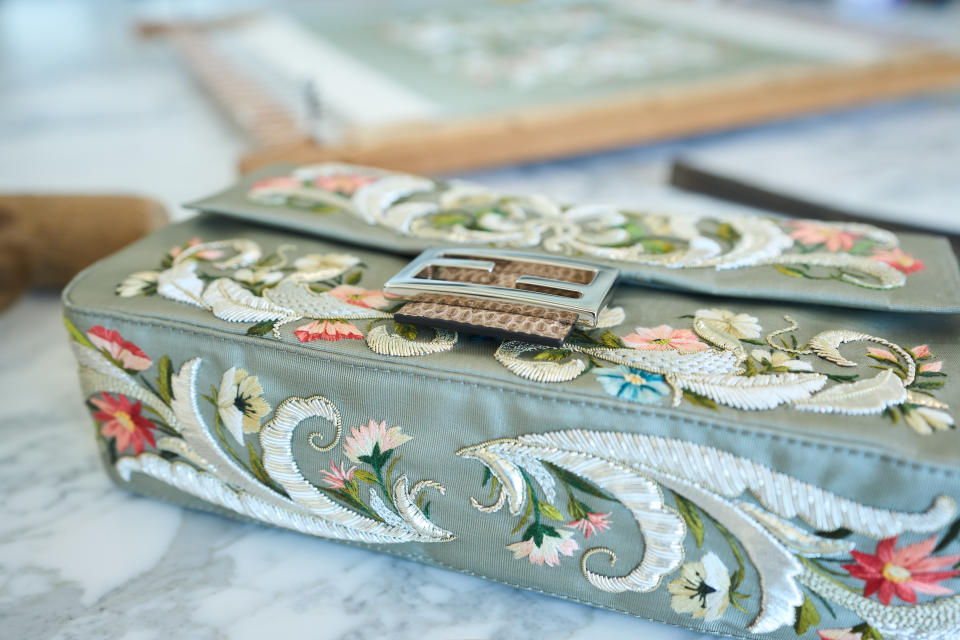
Camera della Moda’s president Carlo Capasa also urged the need to attract new talent, especially in light of the industry’s positive performance. According to the preliminary figures, in the first 11 months of 2022 sales of the fashion and related industries (including textiles, clothing, leather goods, footwear, jewelry, eyewear and cosmetics) grew 18 percent to 98.3 billion euros compared to the same period in 2021.
“The recovery of the fashion industry after COVID-19 has been unexpected and important,” noted Capasa, who forecast sales of the overall sector will reach more than 102 billion euros, up 4 percent compared to the previous year.
“These first months of the year are showing that things are going well and fashion is in a healthy shape. We’re growing but there are challenges,” said Capasa, who added that, according to the Italian fashion chamber, vacancies of skilled workers in the industry will reach around 90,000 people in the next three years.
Communication is key for him as well, as Capasa suggested introducing an hour per week at middle schools dedicated to Made in Italy to educate students about the importance of quality and crafts.
“We have to defend the value of creativity,” he urged. “If we switch creativity with marketing, the whole paradigm changes. We shift from ‘creating a dream’ to ‘satisfy a need,’” he concluded.
Best of WWD


